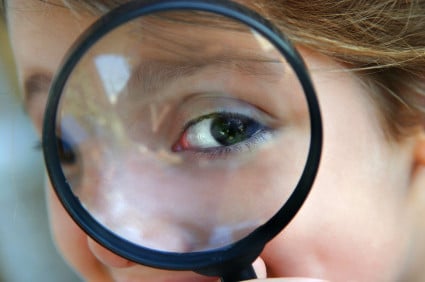Understanding OCD in Teens
Obsessive-Compulsive Disorder (OCD) is a mental health condition that affects many teens, causing significant distress and interfering with daily life. This disorder is characterized by unwanted, intrusive thoughts (obsessions) and repetitive behaviors (compulsions) that teens feel driven to perform. Recognizing and addressing OCD in teens, especially teen girls, is crucial for their well-being and development. This article provides an in-depth look at OCD in teens, its symptoms, causes, and effective treatment options.
What is OCD?
OCD is an anxiety disorder marked by persistent, intrusive thoughts and repetitive behaviors. Teens with OCD often feel compelled to perform certain actions to relieve the anxiety caused by their obsessions. These behaviors can become so consuming that they interfere with everyday activities.
Symptoms of OCD in Teens
Recognizing the symptoms of OCD in teens is the first step toward getting help. These symptoms can vary, but they generally revolve around persistent, intrusive thoughts and repetitive behaviors that disrupt daily life. Understanding these signs can guide parents and caregivers in seeking the appropriate support and treatment for their teens.
– Intrusive Thoughts: Persistent, unwanted thoughts that cause distress. These can include fears of contamination, harm, or making mistakes.
– Repetitive Behaviors: Actions performed to relieve anxiety from the intrusive thoughts. Examples include excessive hand washing, checking locks, or counting rituals.
– Avoidance: Teens may avoid situations that trigger their obsessions, such as touching certain objects or socializing.
– Need for Reassurance: Constantly seeking confirmation that everything is okay to alleviate their anxiety.
Causes of OCD in Teens
Understanding what causes OCD in teens can help in addressing the disorder more effectively. While the exact cause is not known, several factors are believed to contribute to the development of OCD. Knowing these factors can help in identifying at-risk teens and providing early intervention.
– Genetics: A family history of OCD or other anxiety disorders can increase the risk.
– Brain Structure: Differences in brain structure and function can play a role.
– Environmental Factors: Stressful or traumatic events can trigger or worsen symptoms.
– Chemical Imbalances: Imbalances in brain chemicals like serotonin may contribute to OCD.
Major Impacts of OCD on Teen Girls
OCD can significantly affect teen girls, influencing various aspects of their lives. The disorder can interfere with their daily activities, academic performance, and social interactions, leading to additional emotional challenges. Understanding these impacts can help in providing better support and finding effective treatment solutions.
– Academic Performance: Obsessions and compulsions can make it hard to concentrate, leading to difficulties in school.
– Social Interactions: Avoidance behaviors and fear of judgment can result in isolation and strained relationships.
– Emotional Well-being: Persistent anxiety and distress can lead to feelings of depression and low self-esteem.
Treatment Options for OCD in Teens
Treating OCD in teens requires a personalized approach, as each individual may respond differently to various therapies. A combination of therapeutic methods is often the most effective way to manage and reduce symptoms. Here are some of the most effective treatment options available:
1. Cognitive Behavioral Therapy (CBT): This therapy helps teens identify and challenge negative thought patterns that contribute to their anxiety. By changing these thought patterns, teens can develop healthier coping mechanisms.
2. Exposure and Response Prevention (ERP): A specific type of CBT, ERP involves gradually exposing teens to situations that trigger their OCD while preventing them from performing their usual compulsive responses.
3. Medication: Sometimes, medications such as selective serotonin reuptake inhibitors (SSRIs) can help manage OCD symptoms by balancing brain chemicals.
4. Individual Therapy: One-on-one sessions with a therapist to address specific issues related to OCD and develop personalized coping strategies. It provides a safe space for teens to discuss their challenges and receive tailored support and guidance.
5. Group Therapy: Support groups where teens can share experiences and learn from each other in a supportive environment. It allows teens to connect with peers facing similar challenges, reducing feelings of isolation and providing mutual support.
6. Family Therapy: Involves family members in therapy sessions to improve communication and support within the home. It helps educate family members about OCD, improves family dynamics, and ensures that the home environment supports the teen’s recovery.
7. ART Therapy: Employs art-based activities to aid in processing traumatic memories and alleviating anxiety. This therapy helps reframe distressing experiences, reducing their emotional impact, and is particularly effective in alleviating OCD symptoms related to trauma.
8. Animal Assisted Therapy: Involves interactions with animals to provide comfort and reduce stress. Spending time with animals can have a calming effect, helping teens feel more relaxed and open during therapy sessions.
9. Equine Assisted Therapy: Working with horses to build confidence, improve emotional regulation, and reduce anxiety. Interacting with horses can help teens develop trust, patience, and emotional awareness, which are beneficial in managing OCD symptoms.
Other Disorders We Help With
In addition to OCD, it is important to recognize and treat other related disorders to provide comprehensive care. These include:
- Oppositional Defiant Disorder (ODD)
- Post-Traumatic Stress Disorder (PTSD)
- Reactive Attachment Disorder (RAD)
- Avoidant Personality Disorder
- Separation Anxiety Disorder
- Obsessive Compulsive Personality Disorder (OCPD)
- Bipolar Disorder
- Cutting Disorder
- Eating Disorder
- Mood Disorders







